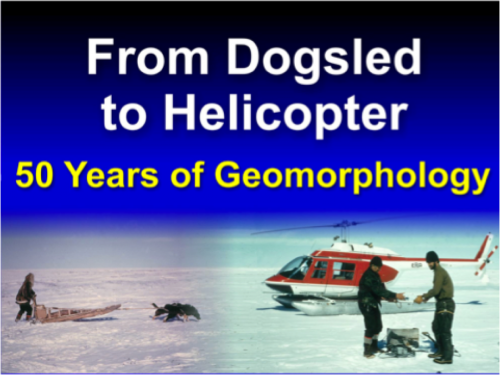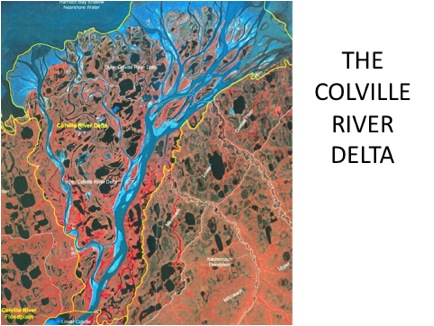
On Sunday, November 7th, I visited Dr. Jesse Walker, professor emeritus in the Department of Geography and Anthropology at LSU. Dr. Walker has conducted geomorphology research along the Colville River in Alaska’s North Slope for over 50 years. His seminal trips to the Arctic took place before the infrastructure of the oil industry had been established. Instead of relying on the (relatively) well-connected airstrips that our CALM team utilized this August, Dr. Walker traveled between field sites with the help of dog sleds, Native guides, and Army-issued gear. It was the remoteness of the region, and the wealth of knowledge yet to be discovered that drew Dr. Walker to the Arctic. During his initial expeditions, Dr. Walker claims that no one knew whether the Colville River even ran year round. Today, the river is among the most studied in the region, and Dr. Walker remains its chief authority (and yes, the Colville does run year round).

Through a lifetime of Arctic research, Dr. Walker has become great friends with Drs. Fritz Nelson of the CALM team, and Dr. Glenn Sheehan of BASC. It was through Dr. Sheehan that I became acquainted with Dr. Walker – a legend in Arctic science in my own backyard. Over coffee, Dr. Walker explained that he is often asked why an Arctic scientist is headquartered in Southeastern Louisiana. Considering Dr. Walker’s research is focused on the Colville River Delta, and Baton Rouge is positioned in the heart of another notable delta, it does not take long for one to realize a glaring similarity between the regions.
My trip to Dr. Walker’s lab would not have been possible without Dr. Molly McGraw, Geography Professor at Southeastern Louisiana University. Dr. McGraw is chiefly responsible for the cataloguing and upkeep of Dr. Walker’s decades of documents. She is herself a respected Arctic researcher as well. Thanks to Dr. McGraw, I left Baton Rouge with a wealth of stories, documents, and slide-shows, the images of which are included in this journal.

Here is wishing all a happy Thanksgiving, particularly those PolarTREC teachers and researchers currently stationed in the Antarctic. We are following your expeditions anxiously!
Very Best, Josh
- < prev
- 29 of 29


Comments